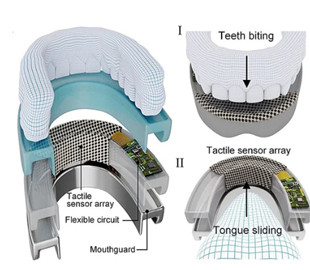
This innovative device can become an indispensable assistant for people with limited mobility, and can also find application in other areas, such as dentistry, sports and even surgery.
The creators of the smart mouthguard sought to make it simple and intuitive to use, which is especially important for people with physical limitations. Traditional control methods, such as touch screens or voice recognition, often prove difficult in certain conditions. The new device, presented in the magazine Nature Electronics, works on the basis of a tactile oral panel (O-pad), equipped with sensors that capture the movements of the tongue and the pressure of the teeth.
200% Deposit Bonus up to €3,000 180% First Deposit Bonus up to $20,000< p>The cap can perform functions similar to a touch screen, but control is through the tongue and biting teeth. This enables users to tackle a variety of tasks, such as typing, playing games or navigating a wheelchair, with high accuracy. For example, sliding the tongue on the cap imitates finger movements on the touch screen, and biting acts like a mouse click. The developed system is based on recurrent neural networks (RNN), which makes it highly effective in ;transforming movements into exact commands. In addition to everyday use, the device could be useful in medicine, where it could collect data on the state of teeth or help in speech therapy.
The team's future plans include optimizing the mouthguard for more complex movements and adapting it for long-term use, and  as well as conducting clinical trials to assess the device's usability and effectiveness in real-world conditions.

